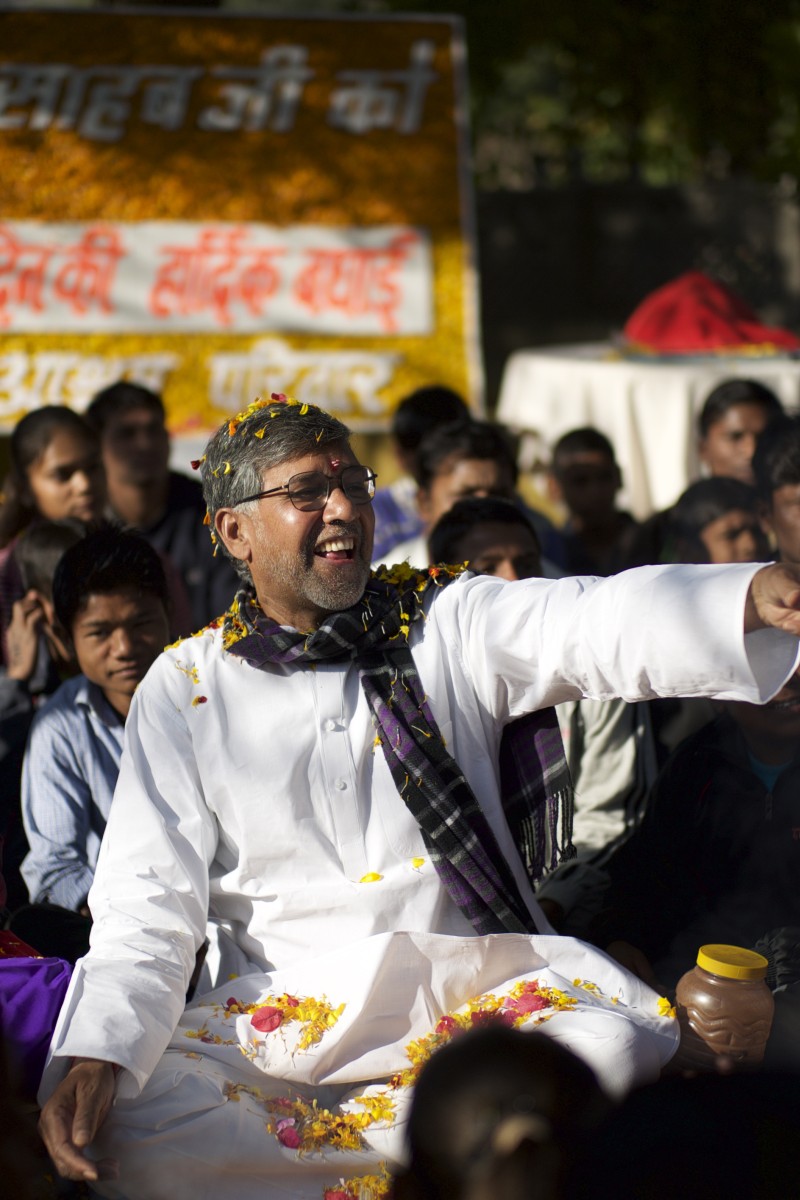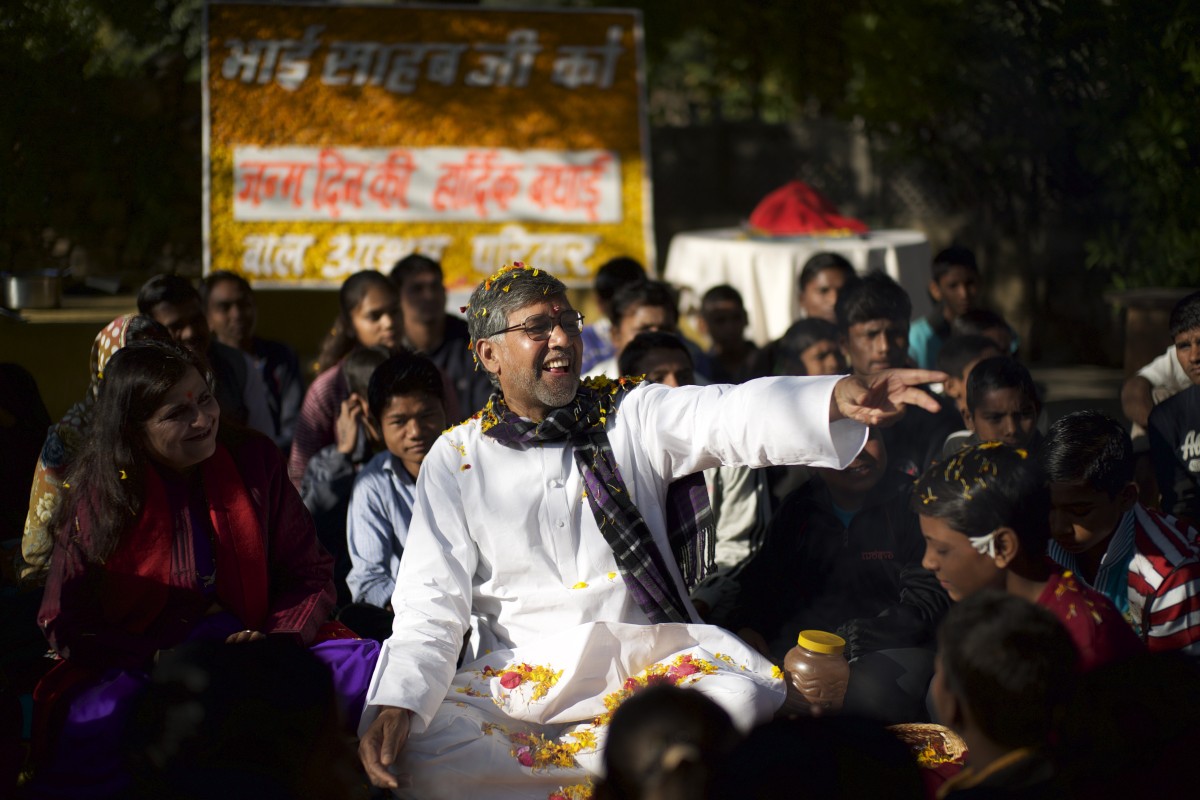
Director of Sundance award-winning documentary 'The Price of Free' discusses the challenges of making a film about child slavery
Director Derek Doneen's documentary tells the story of Nobel Peace Prize recipient Kailash Satyarthi's quest to end child slavery
 The Price of Free takes on troubling and hard-hitting subject matter.
The Price of Free takes on troubling and hard-hitting subject matter.In broad daylight, a group of civilians bursts into an old, decaying building, burrowed deep inside the maze-like alleyways of a New Delhi suburb.
Jittery handheld cameras and hidden body cameras capture the tense moment the group urgently makes their way through the tight corridoors of a clothing factory.
“Where are they?” shouts one of the law enforcement agents. Doors are broken down, and each nook and crevice inside this vast building is searched thoroughly.
‘Sorry to Bother You’ is one of the standout films of the Sundance Film Festival [Review]
The group shoves past regular factory workers to make their way to the scorching rooftop; where between hundreds of piles of clothing, they find what they are looking for: 12 frightened and malnourished young boys who are finally pulled to safety.
The opening sequence of Derek Doneen’s documentary The Price of Free (previously known as Kailash) holds nothing back in depicting the lengths Nobel Peace Prize recipient Kailash Satyarthi and his team go to stop child slavery and trafficking.
“I was stunned to learn that there are more than 150 million children world-wide forced to work at the cost of their childhood,” says Doneen, who was in the city for the Sundance Film Festival: Hong Kong late last month. “Kailash has dedicated 35 years of his life to liberating children. This is a story that needs to be told.”
'Blindspotting' is a genuine and heartfelt comedy-drama [Review]
Satyarthi founded Bachpan Bachao Andolan (Save Childhood Movement) with his wife in 1980. The Nobel peace prize winner has since rescued over 87,000 children from bonded labour. But despite the fame and the endless obligations to numerous committees worldwide, the 64-year-old makes it a point to learn of each rescued child’s backstory, tirelessly working towards ensuring their safety and happiness.
Footage from the documentary does not shy away from showing the dangers of carrying out such a risky operation. There were moments in the film where Satyarthi appeared bloody and bruised during a clash with circus owners trafficking young girls from Nepal. Another sequence shows a gravely ill Satyarthi after a hunger strike caused his organs to start shutting down.
“The bravery of our team and Kailash and his team, who were willing to put themselves on the line and wear the hidden cameras is astounding,” says Doneen.
“We had hidden cameras and hidden microphones, and set up meetings with the child traffickers in a public place, so we could film with long lenses,” he adds. “I think we did a great job, and the entire team jumped through many hurdles to ensure that the production ran very smoothly.”
Throughout the film, Doneen makes it clear to highlight the industries in the West that fuel the trade. He presents a very clear call to action at the end of the film: boycott companies that are known to employ child labourers; and if a sale is too good to be true, it probably is.
“Because it’s a hard topic, our challenge was telling the story in an emotional way, that wouldn’t feel like medicine for an audience,” says Doneen. “Issues like child slavery can feel overwhelming and intractable. When it comes to a solution, it can seem daunting. But this film forces you to think.”
The director of Sundance favourite Ingrid Goes West on social media addiction and inspiration
In addition to the multiple raids, the film follows the stories of Sanjeet and Karim, two young boys recovering from their ordeal after being rescued by Bachpan Bachao Andolan. The audience is taken on their emotionally charged journey, filled with hope and subsequent upsets, as they desperately try to search for their parents.
“It’s been important to us to keep up with the boys,” says Doneen. “After we premiered the film, their stories kept evolving, and I got updates from Kailash about their progress.”
The movie is now different from the original Sundance premiere as a result of this. “It’s really amazing. So much positivity has come from the whole film,” he adds.
And although Doneen and his team were faced with countless uncertainties, watching the children thrive after their liberation made the risks and sacrifices worth it. “Seeing the children rediscover their childhood and the innocence that they lost has been the most rewarding part of this journey,” he says. “To see them laugh, and just be free is the most beautiful transformation and rewarding experience of my life.”
